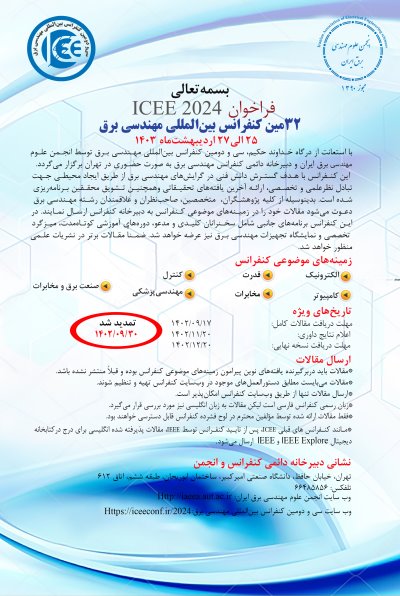0% Complete

نویسندگان :
کلمات کلیدی :
چکیده :
لیست مقالات بایگانی شده
Hadi Jahanirad - Ahmad Menbari
Mahdi Niknejad - Mahdi Firouzbakht - Maryam Amirmazlaghani
Shahrooz Sharifi - Amirhossein Maddah-Torghabehi - Mohammad-Reza Akbarzadeh-Totonchi
Asghar Zarei - Alireza Talesh Jafadideh
S. Ahmad Khalilpour - Ali Hassani - Rohollah Khorambakht - A.R. Zahedi - Abbas Bataleblu - Hamid D. Taghirad
MohamadAli Amini - Mehdi SALAY NADERI - Ali Asghar Farrokhi Raad - Gevork B. Gharehpetian
Leila Hajshahvaladi - Hassan Kaatuzian - Mohammad Danaie - Amirhossein Abdollahi Nohiji
Roqaie Moqadam - Nazila Loghmani - Meysam Siyahmansoori - Armin Allahverdy
آزاده سادات موسوی - شهریار برادران شکوهی
Fatemeh Lajevardi - Azam Mani - Ali Fahim





